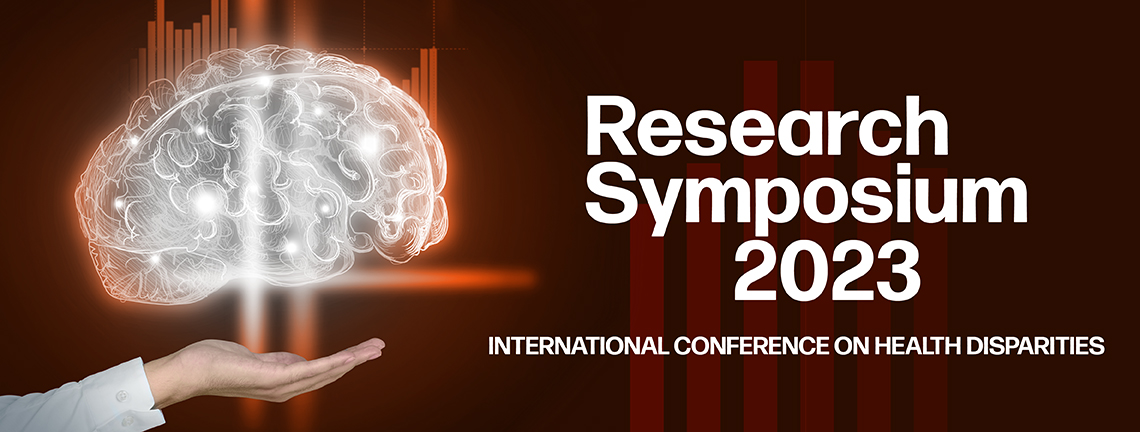
Posters
Presentation Type
Poster
Discipline Track
Patient Care
Abstract Type
Program Abstract
Abstract
Purpose: Primary Care Behavioral Health Partnerships Advancing & Transforming Health Sciences (PCBH PATHS) is a workforce development pipeline project aimed at permanently augmenting UTRGV’s institutional capacity to address shortage of an Integrated Behavioral Health (IBH) competent workforce locally, regionally and nationally. Our initiative, aligned with UTRGV strategic priorities and key initiatives, will integrate basic(model specific strategy and operational elements), mid-level (role identity and profession specific behavioral competencies specific to each health profession), and advanced (behavioral medicine clinical skills) applications of the evidence based PCBH model of delivery. A PCBH focused delivery system (clinical and educational), in which primary care providers (PCPs) and behavioral health consultants (BHCs) are trained to provide routine, population-based, biopsychosocial care in the Rio Grande Valley (RGV) can increase parity for mental health access, minimize toxic effects of culturally bound stigma, reduce fragmentation of physical-mental health and stave off the effect of an expanding opioid use disorder (OUD) crisis.
Description: The PCBH PATHS initiative is designed to impact 2,004 clinician learners, with 1,106 PCP trainees (FM, IM, Ob/Gyn FNP, PA, MS), 818 mental health provider (MHP) trainees, and 80 PCP/MHP practitioners in the RGV by 2024. Over the past four years, the evidence-based PCBH model has been implemented in FM and Ob/Gyn Residency programs clinically, to increase access to whole-health focused services for patients, and educationally, to increase physician competencies in PCBH to provide high quality whole-person care consistently. This initiative strengthens our existing commitment to expand the PCBH model across University of Texas Health Rio Grande Valley (UT Health RGV) primary and specialty care clinics to address physical and behavioral health disparities (e.g., diabetes, depression, pain management, opioid, and substance use issues) for a predominantly Latino population along the US-MX border.
Partners: In partnership with all primary care provider training programs at UTRGV (PA, NP, Residents) and mental health provider training programs led by the Department of Counseling, this collaborative project will use institutional expertise and infrastructure capacity to integrate PCBH model focused education to augment existing training programs.
Looking Ahead: By year 2024, PCBH PATHS will impact 2004 clinician learners, demonstrated by:
- Ten programs aligning PCBH PATHS to existing courses for a PCBH certificate
- PCP trainee programs adopting policies to require Medication Assisted Treatment(MAT)-Waiver for graduation
- An educational research database for tracking % of PCP/MHP graduates completing the PCBH PATHS certificate; % of PCBH PATHS grads practicing in a Medically Underserved Community (MUC); % of grads practicing MAT; % of PCBH PATHS grads intending to practice / champion PCBH•6 PCBH sustained clinics: Demonstrated cost-savings through prospective, case-control design
- Sustaining wellness committees and practices as part of PCBH PATHS implementation
- 8 durable, HRSA-priority deliverables, for replicating PCBH PATHS at other institutions
Recommended Citation
Diaz-Rios, Kristan; George, Deepu; Arellano III, Salvador; Hernandez, Maria; and Ruiz, Myrna, "Primary Care Behavioral Health Partnerships Advancing & Transforming Health Sciences (PCBH PATHS)" (2024). Research Symposium. 51.
https://scholarworks.utrgv.edu/somrs/2023/posters/51
Included in
Primary Care Behavioral Health Partnerships Advancing & Transforming Health Sciences (PCBH PATHS)
Purpose: Primary Care Behavioral Health Partnerships Advancing & Transforming Health Sciences (PCBH PATHS) is a workforce development pipeline project aimed at permanently augmenting UTRGV’s institutional capacity to address shortage of an Integrated Behavioral Health (IBH) competent workforce locally, regionally and nationally. Our initiative, aligned with UTRGV strategic priorities and key initiatives, will integrate basic(model specific strategy and operational elements), mid-level (role identity and profession specific behavioral competencies specific to each health profession), and advanced (behavioral medicine clinical skills) applications of the evidence based PCBH model of delivery. A PCBH focused delivery system (clinical and educational), in which primary care providers (PCPs) and behavioral health consultants (BHCs) are trained to provide routine, population-based, biopsychosocial care in the Rio Grande Valley (RGV) can increase parity for mental health access, minimize toxic effects of culturally bound stigma, reduce fragmentation of physical-mental health and stave off the effect of an expanding opioid use disorder (OUD) crisis.
Description: The PCBH PATHS initiative is designed to impact 2,004 clinician learners, with 1,106 PCP trainees (FM, IM, Ob/Gyn FNP, PA, MS), 818 mental health provider (MHP) trainees, and 80 PCP/MHP practitioners in the RGV by 2024. Over the past four years, the evidence-based PCBH model has been implemented in FM and Ob/Gyn Residency programs clinically, to increase access to whole-health focused services for patients, and educationally, to increase physician competencies in PCBH to provide high quality whole-person care consistently. This initiative strengthens our existing commitment to expand the PCBH model across University of Texas Health Rio Grande Valley (UT Health RGV) primary and specialty care clinics to address physical and behavioral health disparities (e.g., diabetes, depression, pain management, opioid, and substance use issues) for a predominantly Latino population along the US-MX border.
Partners: In partnership with all primary care provider training programs at UTRGV (PA, NP, Residents) and mental health provider training programs led by the Department of Counseling, this collaborative project will use institutional expertise and infrastructure capacity to integrate PCBH model focused education to augment existing training programs.
Looking Ahead: By year 2024, PCBH PATHS will impact 2004 clinician learners, demonstrated by:
- Ten programs aligning PCBH PATHS to existing courses for a PCBH certificate
- PCP trainee programs adopting policies to require Medication Assisted Treatment(MAT)-Waiver for graduation
- An educational research database for tracking % of PCP/MHP graduates completing the PCBH PATHS certificate; % of PCBH PATHS grads practicing in a Medically Underserved Community (MUC); % of grads practicing MAT; % of PCBH PATHS grads intending to practice / champion PCBH•6 PCBH sustained clinics: Demonstrated cost-savings through prospective, case-control design
- Sustaining wellness committees and practices as part of PCBH PATHS implementation
- 8 durable, HRSA-priority deliverables, for replicating PCBH PATHS at other institutions

